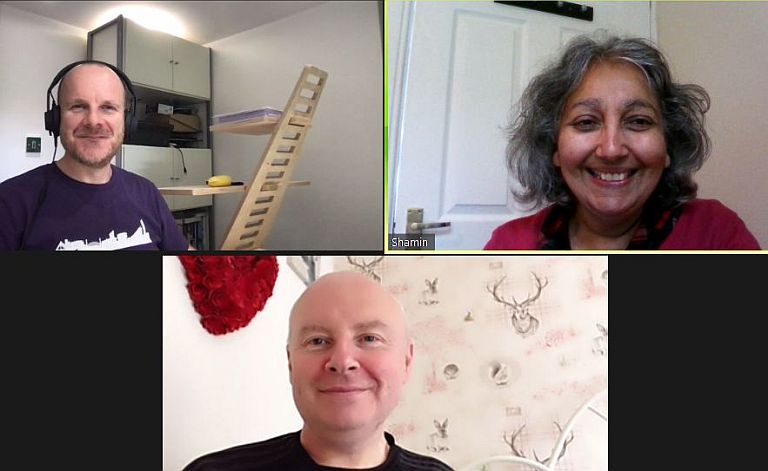Peer Support Groups – A Journey through the Pandemic
29/06/2022

Our face-to-face peer support groups, in common with other services across the country, had a huge challenge in how to adjust to the lockdown restrictions in March 2020.
I had just started my role prior to lockdown and rapidly became aware that we had to maintain some level of contact, as well as find alternative ways to deliver the groups. A first priority was to make contact with the people involved in the groups to check in with them. The pandemic had left many people feeling anxious.
Volunteers initially felt left without a purpose as there was no delivery. However we worked as a team to explore ways in which we could still offer a service; do we just offer groups remotely or was there a possibility of offering one-to-one support? We eventually settled with offering groups over Zoom, once it was clear how we could do this safely. I checked who within our existing group members was interested in the online groups and in May 2020 we were able to start our online delivery.
The online delivery has been a journey of learning together, in which technical obstacles have been embraced and overcome. New skills have been developed by all! Some volunteers and members have moved on and new people have joined.
The Friday group has seen the demographics of the group transform. The face-to-face group run from No 93 in Harpurhey was well-established with a consistent number of people. The online session has seen a more varied group. More female, younger and more transient with people joining but then not staying for a variety of reasons. Recruitment has been a challenge, finding the right people that will most benefit from virtual peer support. However, the group has persevered throughout this time. The volunteer facilitators have turned up every week without fail, never really knowing who was going to turn up in the virtual room. We have seen some strong relationships form and the group has flourished; the positive impact on the members is clearly evident. The engagement, interaction and sharing of support and ideas across the group from all members is such a positive thing to see.
Whilst the transition resulted in difficulty offering support to all previous members, the movement to online has improved accessibility for others. Within the Wednesday support session there have been many advantages. Individuals who have felt unwell, lacked sleep, or were in poor physical health may have been less likely to attend face-to-face sessions due to travel. Online meetings have combated this issue by enabling them to attend in the comfort of their own home, be present for parts of the session, and leave if feeling unwell. Additionally, members who feel less comfortable within group situations have benefited from the options to mute, turn their video off, and communicate through the chat box. These choices have proven a large benefit, as some members have joined with their camera off and feeling less confident in contributing, to weeks later having their camera on and often sharing within the group. New members have also fed back that attending face-to-face meetings may be triggering for them, therefore online sessions have alleviated these risks. In these ways the online meetings have overcome multiple support barriers, and in effect, proven as extremely valuable for certain members.
Virtual meetings have also been extremely helpful through times of social isolation, disruptions, and uncertainty. The weekly meetings have offered members consistency through periods where routines have been heavily disrupted. Also, week by week strong relationships and networks have been formed in common with the Friday group, encouraging community through times of social isolation. Overall, the movement to an online platform has provided protective factors of consistency and community to our members during a period where mental health is most at risk.
Our experience in both groups is that peer support has not only been a lifeline for members, but for the volunteers too. The fact that we have been able to keep those connections week in, week out, has proved that these support groups are needed and they can work for a number of people.
“I have been volunteering as a peer support volunteer for Manchester Mind for a few months now and it has quickly become an essential part of my week and something I really look forward to. The group is an important, safe space for people with mental health difficulties to meet and support each other with their mental wellbeing.” Peer Support Volunteer
Shamin Malik, Peer Support Development Worker and the Peer Support Volunteer Team
